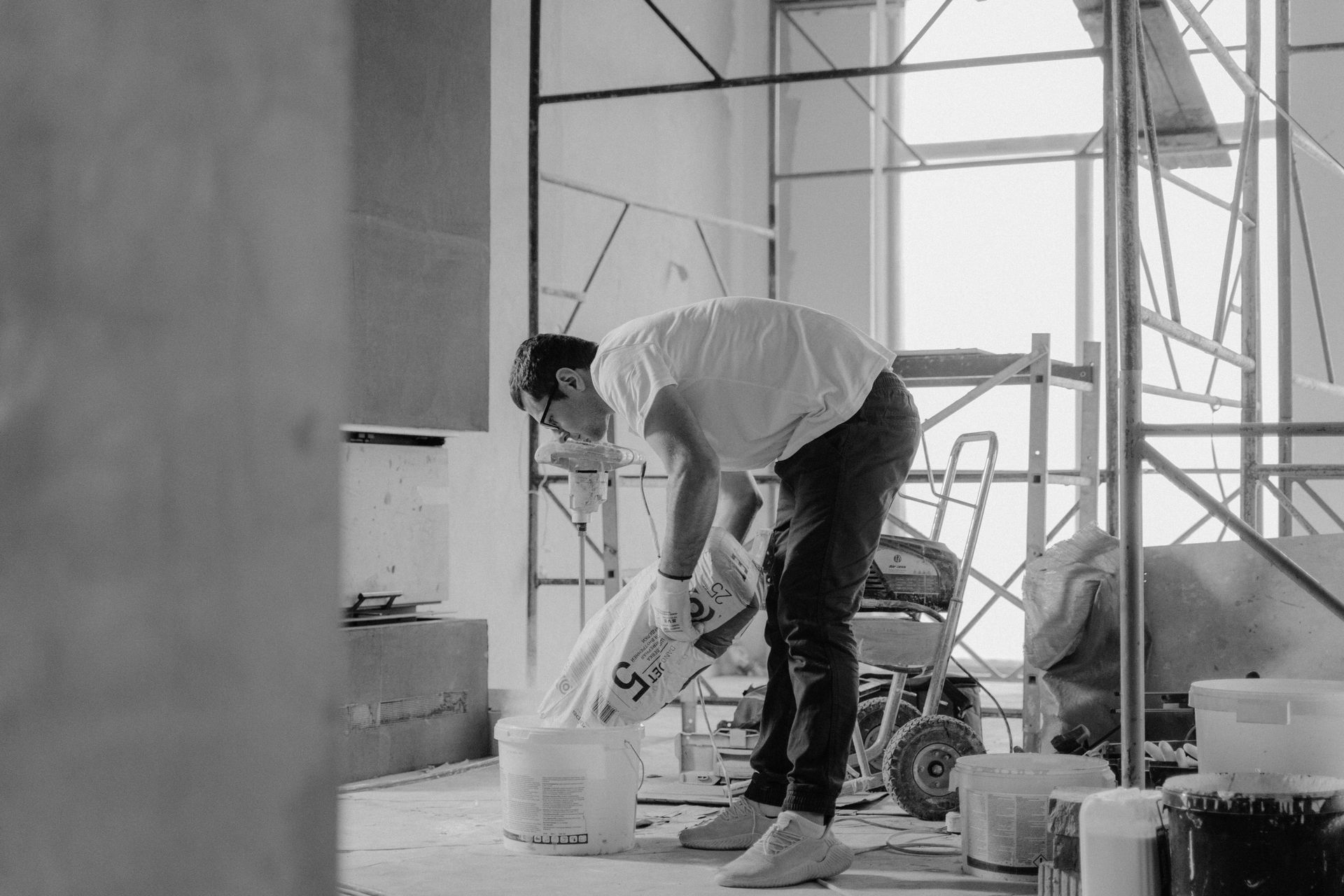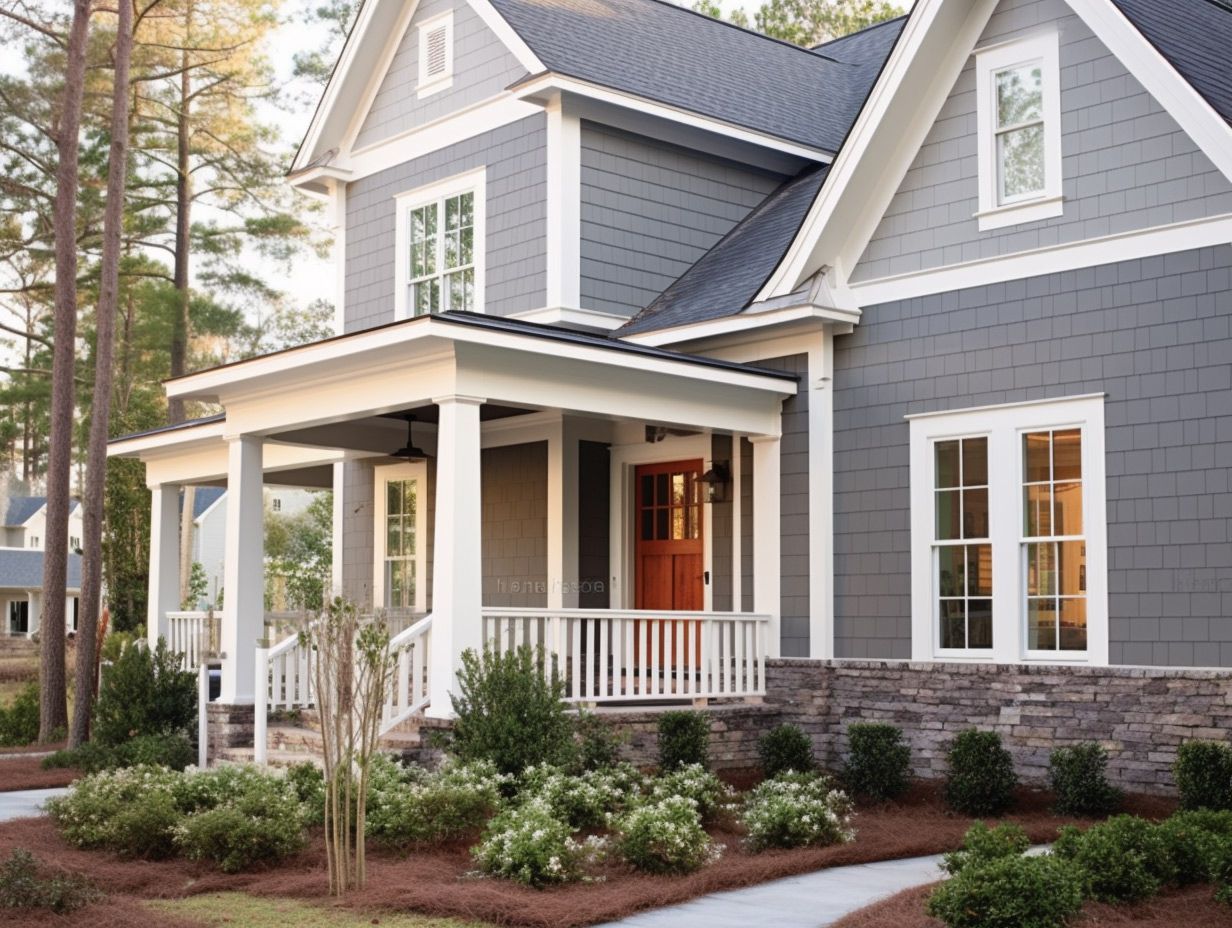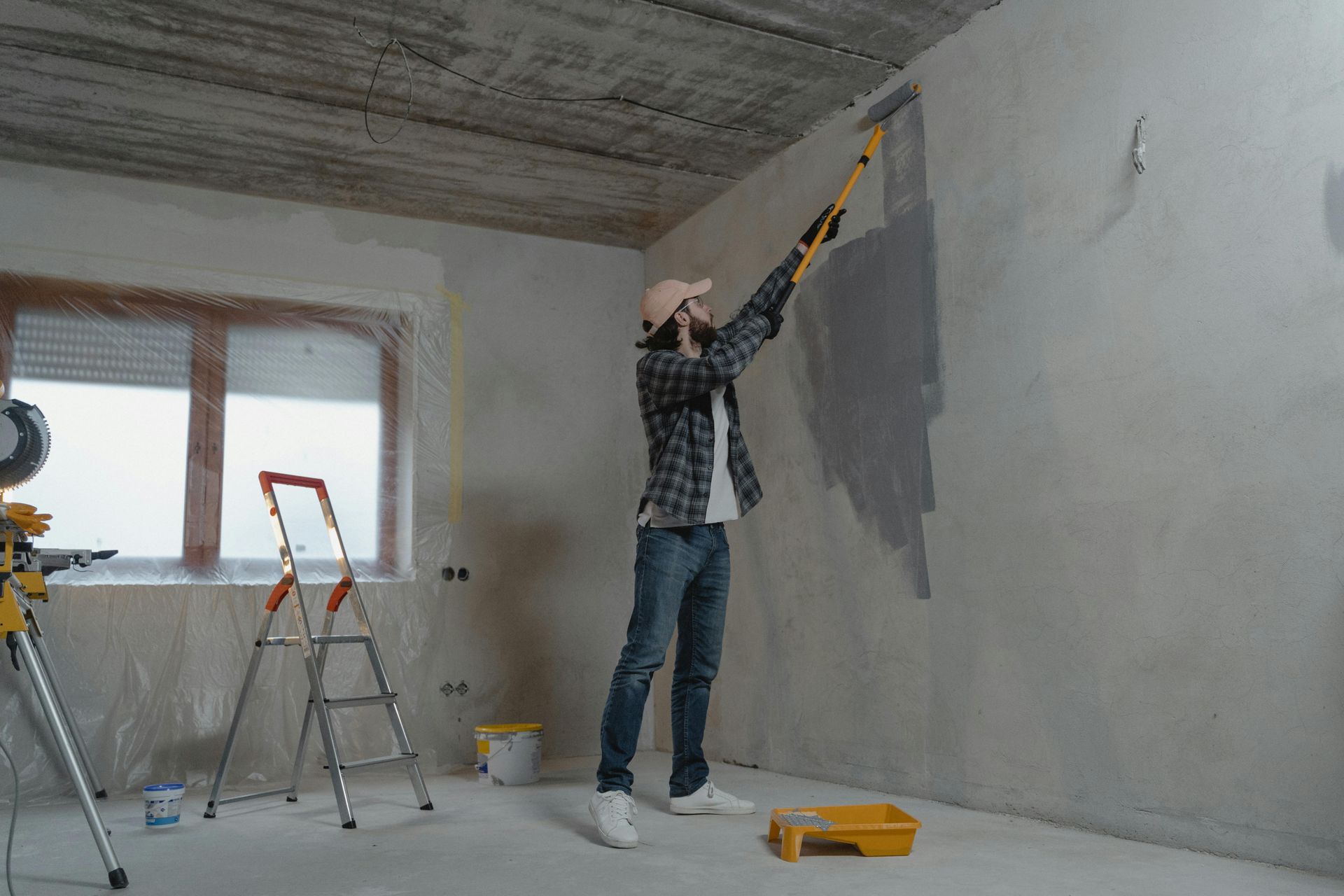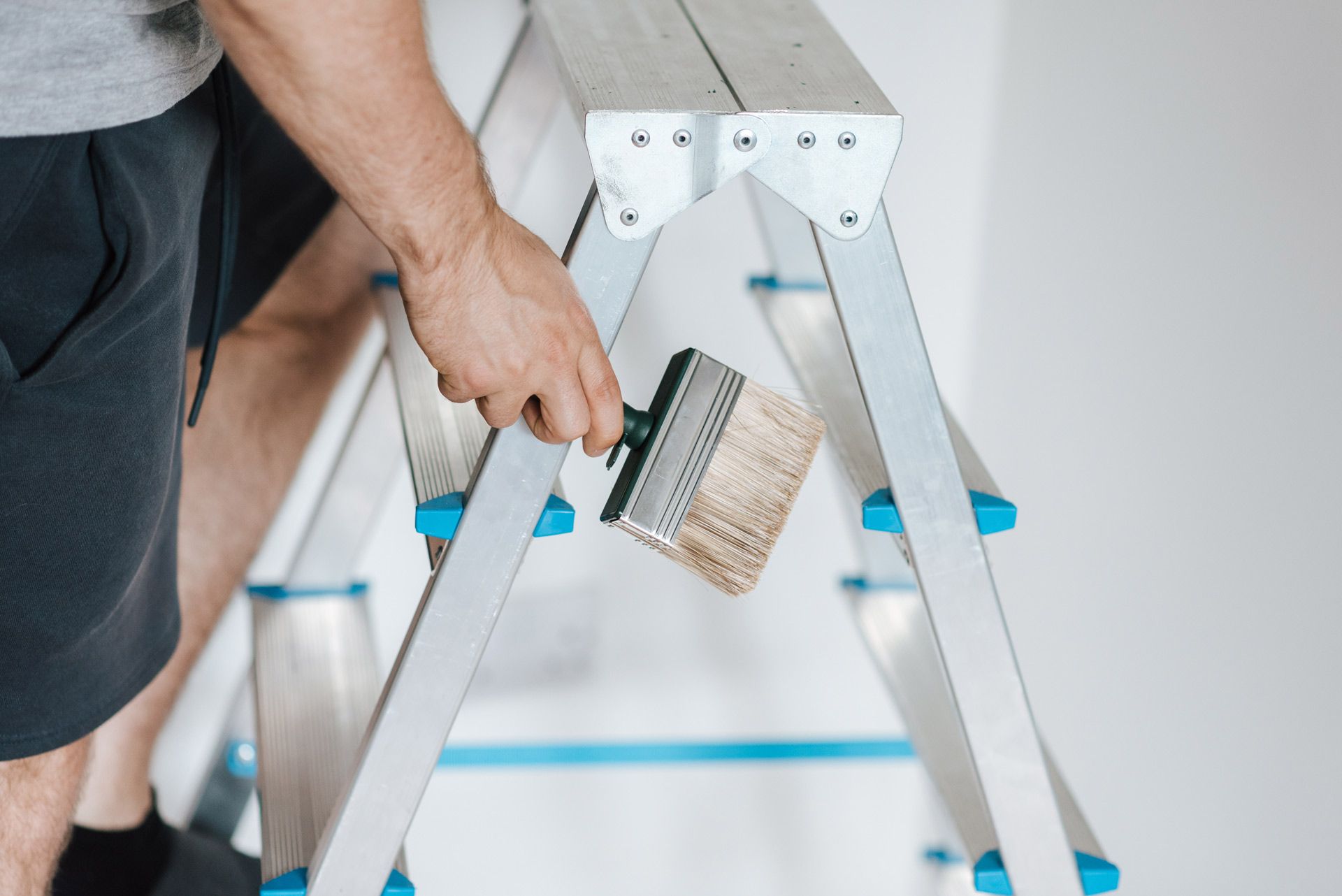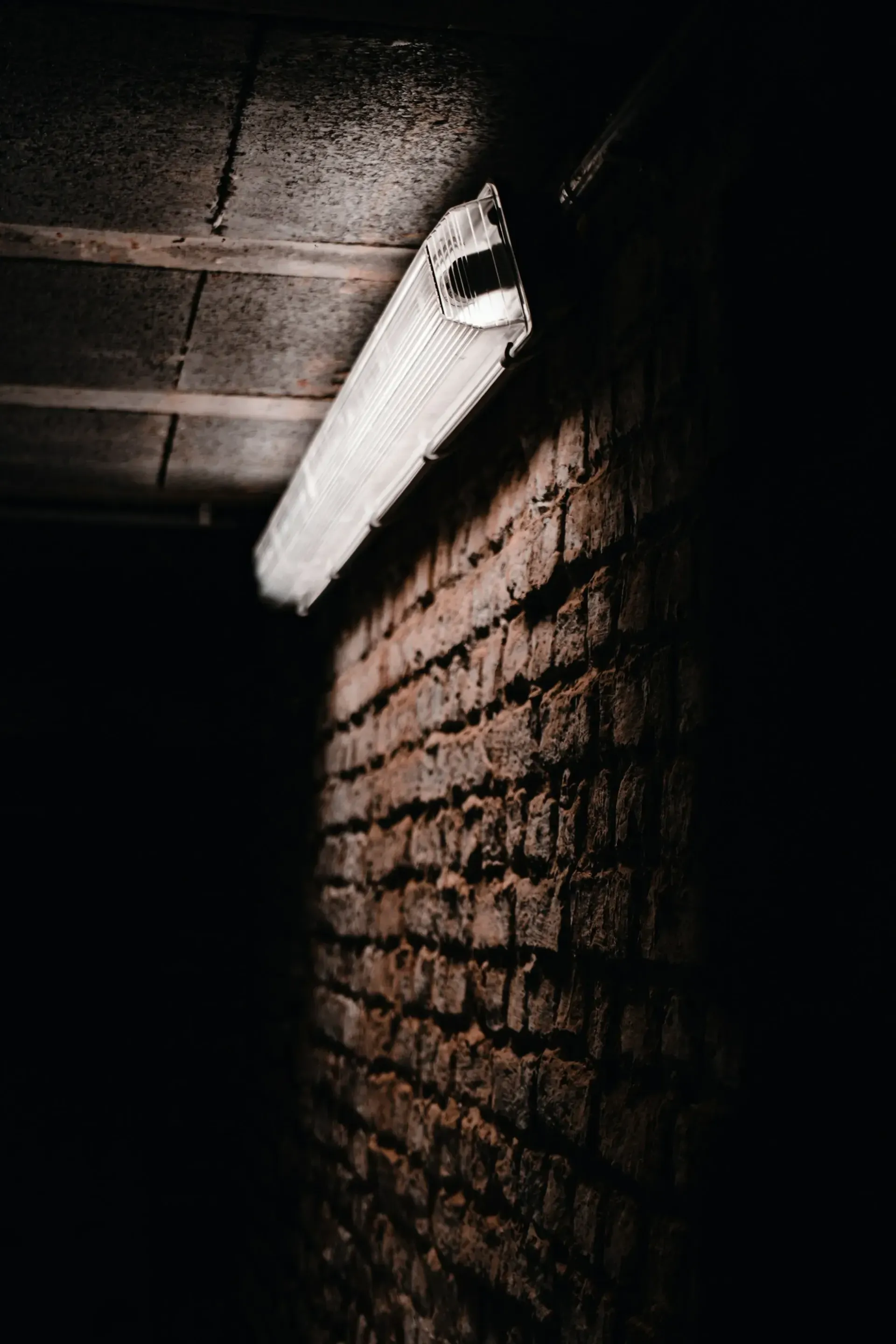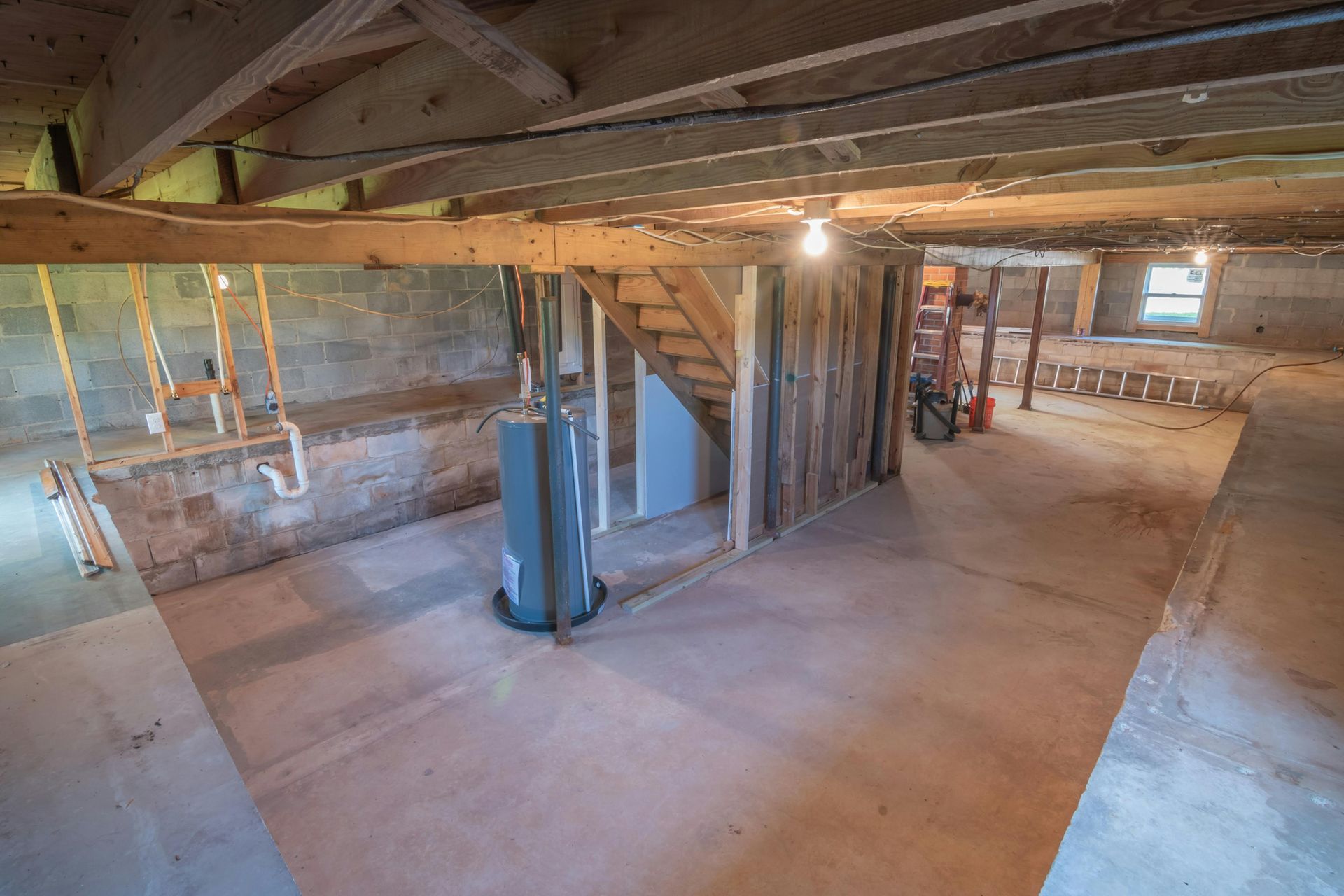
Why Basement Flooring Choices Matter
Choosing flooring for your basement isn’t the same as choosing it for the rest of your home. Basements have higher moisture levels, temperature changes, and less natural light, which can impact how certain floors perform over time. If you pick the wrong material, you could end up dealing with warping, mold, or costly replacements down the road.
So, what’s the best flooring for a finished basement? The top choices are luxury vinyl plank (LVP), engineered wood, epoxy coating, tile, and carpet tiles. These materials handle moisture well and offer durability, comfort, or style, depending on your needs. On the other hand, solid hardwood, laminate, and thick carpet should be avoided because they can absorb moisture and lead to damage.
In this guide, we’ll break down the best and worst basement flooring options, explain their pros and cons, and help you pick the right one based on your budget, comfort, and style preferences.
Flooring Options to Avoid in Basements
Not all flooring works well in a basement. Some materials absorb moisture, leading to mold and damage. Others can warp, crack, or become unsafe over time. If you want flooring that lasts, it’s important to know what to avoid first.
Solid Hardwood Flooring
Hardwood is beautiful, but it’s not built for basements. Wood expands and contracts with humidity changes, which can cause warping, buckling, and cracks. Even with a moisture barrier, hardwood floors are risky in a space that naturally holds more dampness.
Why It Doesn’t Work
- Absorbs moisture and swells over time.
- Prone to warping and buckling in high humidity.
- Expensive to replace if water damage occurs.
Laminate Flooring
Laminate looks like wood but is made of fiberboard, which soaks up moisture quickly. Even small water leaks can cause swelling, bubbling, and separation at the seams.
Why It Doesn’t Work
- Not waterproof—moisture causes the layers to separate.
- Easily damaged if water seeps under the boards.
- Short lifespan in humid or damp environments.
Standard Carpet with Thick Padding
Carpet feels warm and soft underfoot, but in a basement, it can trap moisture and develop mold. If your basement ever floods or has high humidity, thick carpet will soak up water like a sponge.
Why It Doesn’t Work
- Absorbs moisture, leading to mold and mildew.
- Takes a long time to dry after spills or leaks.
- Can trap musty smells and allergens over time.
Avoiding these flooring types will save you from expensive repairs and replacements in the future.
Best Flooring Options for a Finished Basement (Ranked by Suitability)
Now that you know what to avoid, let's focus on the best flooring choices for a finished basement. These options are ranked based on moisture resistance, durability, comfort, and cost-effectiveness.
1. Best Overall: Luxury Vinyl Plank (LVP) & Luxury Vinyl Tile (LVT)
Luxury vinyl is one of the most popular basement flooring options because it is completely waterproof, affordable, and easy to install. It mimics the look of wood or stone while handling moisture without damage.
Pros
- 100% waterproof with no risk of warping or swelling
- Realistic wood and tile designs for a stylish look
- Durable and scratch-resistant, great for high-traffic areas
- Easy to install with click-lock or glue-down options
Cons
- Can feel hard underfoot without underlayment
- Lower-quality versions may look less authentic
Best for
Homeowners who want a waterproof, stylish, and budget-friendly option.
2. Best for a High-End Look: Engineered Wood Flooring
If you love the warmth of real wood, engineered wood is a better choice than solid hardwood for basements. It has a thin layer of hardwood on top and a moisture-resistant plywood core, making it more stable in humid conditions.
Pros
- More moisture-resistant than solid hardwood
- Adds value and warmth to your home
- Available in many finishes and wood types
Cons
- Still not fully waterproof and needs moisture protection
- More expensive than vinyl or tile
Best for
Homeowners who want a real wood look without the risk of warping.
3. Best for Durability: Epoxy Coating
Epoxy creates a seamless, waterproof surface that resists stains, impact, and chemicals. It is popular for home gyms, workshops, and modern basement designs.
Pros
- Completely waterproof with no risk of water damage
- Highly durable and easy to clean
- Modern, sleek finish with different color options
Cons
- Cold and hard underfoot, which may be uncomfortable
- Requires professional installation for best results
Best for
Basements used as home gyms, workshops, or industrial-style spaces.
4. Best for Comfort & Warmth: Carpet Tiles
Carpet tiles offer softness, insulation, and easy replacement if damage occurs. Unlike traditional carpet, these tiles can be removed individually if they get wet, making them more practical for basements.
Pros
- Warm and comfortable underfoot
- Provides sound and heat insulation
- Easy to replace individual tiles if damaged
Cons
- Can still absorb moisture if the basement is not well-ventilated
- Not ideal for high-moisture areas
Best for
Basements used as bedrooms, family rooms, or play areas.
5. Best for High Moisture Areas: Tile (Ceramic or Porcelain)
Tile is a great long-term choice for basements prone to moisture. It is waterproof, durable, and works well with radiant heating systems to prevent cold floors.
Pros
- Completely waterproof and resistant to mold
- Extremely durable with many design options
- Works well with underfloor heating
Cons
- Cold underfoot, which may be uncomfortable in winter
- Hard surface, not ideal for homes with young children
Best for
Basements with high humidity or radiant heating systems.
6. Best for Multi-Use Spaces: Rubber Flooring
Rubber flooring is waterproof, soft, and impact-resistant, making it great for home gyms, playrooms, or flex spaces.
Pros
- Cushioned surface, great for safety and comfort
- Waterproof and easy to clean
- Absorbs noise and impact
Cons
- Limited design options, mostly found in black or neutral colors
- May have a rubbery smell at first
Best for
Basements used as gyms, kids' play areas, or multi-purpose rooms.
How to Choose the Best Flooring for Your Basement
The best flooring for your basement depends on how you plan to use the space. Below are key considerations to help you make the right decision.
Best Flooring for High-Moisture Basements
If your basement tends to be damp or has occasional water leaks, you need waterproof flooring that will not absorb moisture or warp over time.
Top choices:
- Luxury Vinyl Plank (LVP)
- Epoxy Coating
- Ceramic or Porcelain Tile
These options provide excellent water resistance and long-term durability in high-moisture areas.
Best Flooring for Warmth and Comfort
If your basement will be used as a living space, bedroom, or playroom, warmth and comfort are priorities. Hard surfaces like tile and epoxy can feel cold, especially in winter.
Top choices:
- Carpet Tiles
- Engineered Wood
- Luxury Vinyl Plank with an Underlayment
Carpet tiles provide insulation and softness underfoot, while engineered wood and LVP with underlayment add warmth without trapping moisture.
Best Budget-Friendly Option
If you want durable, attractive flooring without overspending, choose an option that balances cost, style, and functionality.
Top choice:
- Luxury Vinyl Plank (LVP)
LVP offers the best value for money, with realistic wood or stone designs, high durability, and waterproof properties.
Best Flooring for a Modern, Industrial Look
For homeowners who want a sleek, contemporary feel, some flooring options offer a clean, polished finish.
Top choices:
- Epoxy Coating
- Ceramic or Porcelain Tile
Epoxy provides a seamless, high-gloss look, while tile offers a variety of styles, including modern concrete and stone finishes.
Best Flooring for Multi-Purpose Spaces
If your basement serves multiple functions—such as a home gym, playroom, or entertainment space—you need flooring that is versatile, durable, and easy to maintain.
Top choices:
- Rubber Flooring
- Luxury Vinyl Plank
Rubber flooring is great for impact absorption and safety, while LVP works well for areas that need both durability and style.
Conclusion & Recommended Contractor
Choosing the right basement flooring can save you from future headaches. The best options are luxury vinyl plank, engineered wood, epoxy coating, tile, and carpet tiles, depending on your needs. If moisture is a concern, avoid hardwood, laminate, and thick carpet, as they can lead to mold, warping, and costly repairs.
For professional basement finishing and flooring installation, MR Home Remodeling provides expert service in Lehi, American Fork, Pleasant Grove, Orem, Provo, Springville, Payson, Santaquin, Park City, Spanish Fork, Highland, and Saratoga Springs. Their team ensures your basement is properly prepped and installed with high-quality materials suited for your space.
For more expert home improvement insights, visit Your Ultimate Guide to Top-Tier Home Services.


